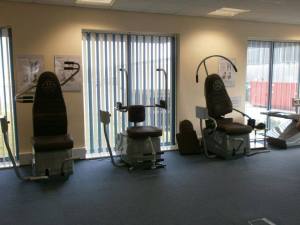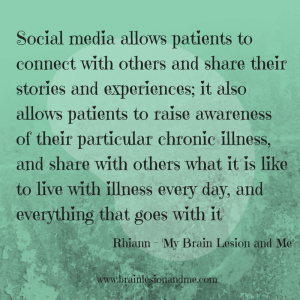
Welcome to the Health Activist Writer’s Month Challenge brought together by WEGO Health – a social network for all health activists. Again, I am participating in the annual Writer’s Month Challenge in which I will be writing about my health activism and health condition based upon given prompts.
Tuesday April 7th: World Health Day
April 7th is World Health Day – so let’s talk about daily nutrition and diet. After your diagnosis, did you alter your diet or health routine? If so, how so? How do you maintain a health regiment?
Water. Leonardo di Vinci, famously said that “Water is the driver of nature.” Drinking plenty of water and keeping well hydrated is vital for a healthy functioning brain and nervous system. Therefore, when living with a neurological disorder, hydration and proper nutrition are not only critical to sustaining health but can also prevent a progression of the condition, or worsening of symptoms.
After being diagnosed with a neurological therefore, I take steps to ensure that I drink enough water throughout the day and even downloaded an app for my phone to remind myself to drink a glass of water, as living with symptoms such as fatigue, and brain fog, it can be really easy to forget! And nowadays, water is generally the main beverage that I choose to drink. I have never been one to drink hot drinks, such as tea or coffee, although I do enjoy the occasional hot chocolate for a treat! But knowing all of the benefits of water for not just the brain, but the whole body I am happy drinking it, knowing I am doing something good for my health.

Since my diagnosis, however, I would not say I have taken huge alterations to my diet or daily health regiment. I have been aware more of my diet and the importance of maintaining a healthy weight, especially as the weakness in my legs, and the other symptoms have made it difficult to regularly take part in cardiovascular exercise. I am now therefore more aware of what I eat, and if we are having a take-away or eating out, then I will choose a dish that is healthy and not overloaded with salt or fat. Recently, I have been opting to eat dishes with chicken, or seafood, especially king prawns, which not only have plenty of protein but are also low in fat.
Over the past couple of years, I have also developed Irritable Bowel Syndrome, which can result in agonising stomach cramps, bloating, and diarrhea. As a result of this new diagnosis, I now have to be careful what I eat, especially for any potential trigger foods. For example, dairy products can often be a trigger for an IBS flare, in particular cream and to have ensure that I ask for any desserts or my order of a hot chocolate not to be topped off with the whipped cream. Luckily, in terms of the IBS, I have found a great friend in peppermint tea, as if a bad flare of the symptoms occur, after a mug or tea of the tea, I often find that the symptoms such as the stomach cramps eases off. Yay for peppermint tea!

Exercise, as previously mentioned is often very difficult when living with a chronic illness, due to debilitating symptoms, such as pain, fatigue and weakness inhibits us to be able to do so. However, last year I joined, what is known as a feel-good factory. It is different from a conventional gym, as the equipment there consists of toning tables rather than giving a cardiovascular workout. These toning tables are designed to rebuild muscle strength, tone, improve posture, increase circulation and mobility, just some of the examples of the benefits of the equipment. And as the equipment consists of chairs and beds, I am not at risk of falls due to legs giving way. Although I may not have seen improvements in the muscle strength and tone in my legs, it may be that without regularly working out at the feel-good factory, the weakness may be even worse.

All these steps, may not have had any effect on the symptoms caused by my neurological condition, which is evident by the recent worsening of my symptoms, however by taking small steps in maintaining a healthy regiment such as drinking plenty of water, and eating a healthy low-fat diet I can not only have control over aspects of my health that I can control but also helps to avoid even more health problems often caused by an unhealthy lifestyle.




